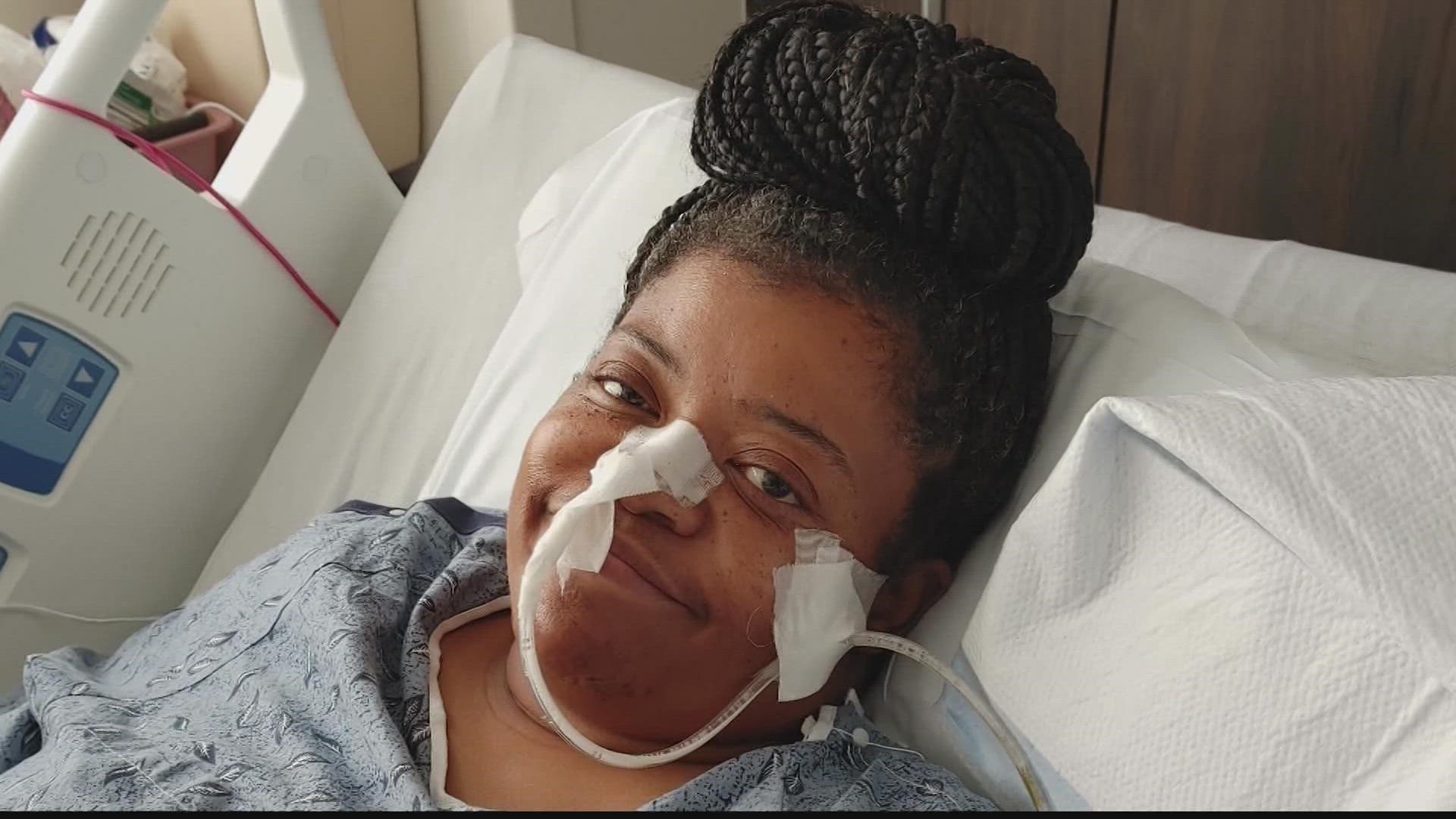ATLANTA — As National Women’s Health Week arrives, there is concern over the rising number of deaths from uterine cancer.
A study by the National Cancer Institute found the death rate from a more aggressive form of uterine cancer increased over an eight year period, and minorities are at the greatest risk.
There are no screenings for uterine cancer. Women have to know the symptoms, listen to their bodies, and see the doctor immediately when there is concern. Feon Means of McDonough did exactly that and survived uterine cancer.
“I have a praying family,” Means said. “We just kept the faith and kept praying and believing God.”
She never felt sick, but there were warning signs that prompted a trip to the doctor and a biopsy.
“I just had a heavy cycle and being 53, I was still having a cycle,” Means added. “So, that was the concern.”
Uterine cancer is treatable and survivable when detected early.
But scientists report an increasing number of deaths due to non-endometroid, or Stage 2 uterine cancer.
“The problem with that type of cancer is that we discover it usually at a later stage,” OB/GYN Dr. Sujatha Reddy explained.
The National Cancer Institute reports that over an eight year period, deaths from Stage 2 uterine cancer increased nearly 3% overall. During the same period, the increase was 3.5% for black women, and 6.7% for Hispanic women.
Dr. Reddy said all women need to look for the signs.
“They can have discomfort, maybe cramping, but the cardinal Hallmark sign of uterine cancer is going to be abnormal bleeding and or post-menopausal bleeding,” She added. “Don't wait to go to your provider. Go pretty quickly.”
Means had surgery to remove her cancer while at the same time, her daughter was undergoing treatment for breast cancer.
“The same day that my daughter rang the bell for breast cancer, about two hours later, she (the nurse) told me that I was cancer free,” Means added
With faith on their side, mom and daughter are doing fine.

